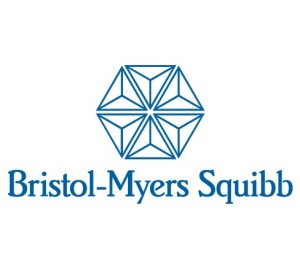 Rigel Pharmaceuticals Inc. and Bristol-Myers Squibb Company recently announced they are going to collaborate on the investigation, development and delivery of TGF Beta Receptor Kinase Inhibitors to be used in immuno-oncology related conditions.
Rigel Pharmaceuticals Inc. and Bristol-Myers Squibb Company recently announced they are going to collaborate on the investigation, development and delivery of TGF Beta Receptor Kinase Inhibitors to be used in immuno-oncology related conditions.
Rigel Pharmaceuticals, Inc. is a company dedicated to the discovery and development of innovative small-molecule drugs aimed to treat inflammatory and autoimmune diseases, immuno-oncology related diseases, and muscle disorders. The company centers their research on specific signaling pathways that play important roles in disease mechanisms. TGF beta-receptor kinase inhibitors are included in the company portfolio.
TGF beta plays a role in tumor growth and has a suppressor effect in cell proliferation and function, promoting differentiation of specific suppressive T-cells. TGF beta is frequently present within the tumor microenvironments and is able to diminish anti-tumor host immune reactions. Evidence has shown that TGF beta can develop from the tumor itself, approximating cells and/or infiltrating macrophages.
A drug that can inhibit TGF beta signaling in cancer patients can potentially neutralize any critical mechanism used by cancers to escape immuno-surveillance, transforming this signaling pathway into a therapeutic target for immuno-oncology related applications.
Rigel Pharmaceuticals had already discovered small-molecule inhibitors of TGF beta-receptor kinases, with pre-clinical studies with animal models of cancer showing these drugs have significant efficacy. This new collaboration with Bristol-Myers Squibb will focus on the development of drugs that increase the immune system’s response to different types of cancers either as a monotherapy or in combination with other immune checkpoint inhibitors, including Opdivo (nivolumab) and Yervoy (ipilimumab), drugs owned by Bristol-Myers Squibb.
The agreement stipulates that Bristol-Myers Squibb will have exclusive rights to the development and commercialization of the small molecule therapeutics existent in Rigel’s TGF beta portfolio, including those approved for cancer treatment. Rigel will be paid $30 million upfront by Bristol-Myers Squibb and with the development of new compounds the company can gain access to more than $309 million. Rigel Pharmaceuticals can also receive royalties on the net sales from products developed under this collaboration.
“As a company dedicated to leading scientific advances in immuno-oncology, we are committed to exploring the utility of TGF beta inhibition as a potential therapeutic to fight certain cancers,” said Carl Decicco, Ph.D., Head of Discovery, R&D, Bristol-Myers Squibb in a recent news release. “Working with Rigel and having access to their TGF beta receptor kinase inhibitors extends our existing portfolio of immunotherapeutic approaches to include this key mediator of immunosuppression in the tumor microenvironment.”
“This collaboration places our TGF beta receptor kinase inhibitor program into the hands of Bristol-Myers Squibb, a premier immuno-oncology company. Together, we believe TGF beta inhibition may offer novel therapeutic opportunities in oncology treatments,” added Raul Rodriguez, president and chief executive officer of Rigel. “Rigel has focused on immunology, and oncology via numerous partnerships. This collaboration is Rigel’s first in immuno-oncology and is one of the Company’s several programs in this area.”


